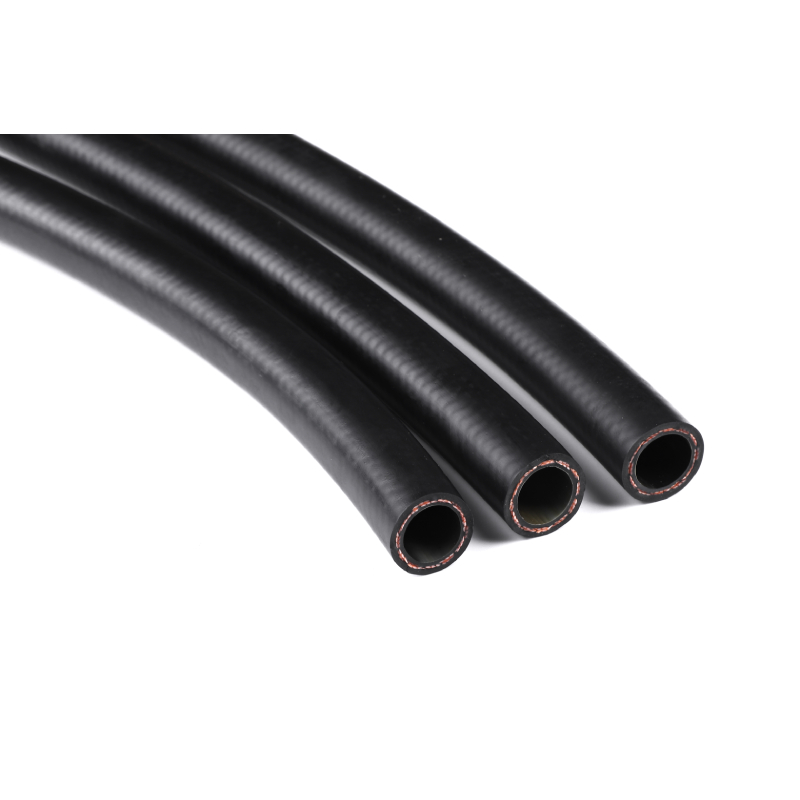oil cooler hose
Nov . 25, 2024 22:40 Back to list
oil cooler hose
Understanding the Importance of Oil Cooler Hoses in Automotive Systems
When it comes to automotive engineering, efficient temperature management is crucial for the longevity and performance of an engine. One of the vital components that play a significant role in this process is the oil cooler hose. This article explores what oil cooler hoses are, their function, the materials they are made of, and why they are essential for maintaining vehicle performance.
What is an Oil Cooler Hose?
An oil cooler hose is a specialized hose used to transport oil between the engine and the oil cooler. The purpose of this hose is to facilitate the cooling of engine oil, which can reach extremely high temperatures during operation. Oil coolers are essential in preventing engine overheating, maintaining optimal lubrication, and ensuring that the engine runs efficiently.
How Do Oil Cooler Hoses Work?
The oil cooler operates by transferring heat away from the engine oil, allowing cooler oil to circulate back into the engine. The oil cooler hose connects the oil cooler to the engine, serving as the passage through which the heated oil travels to the cooler. As the oil circulates through the cooler, it loses heat, and the now-cooled oil returns to the engine, helping to maintain an optimal operating temperature.
Characteristics of Oil Cooler Hoses
1. Material Composition Oil cooler hoses are typically made from high-performance materials designed to withstand high pressures and temperatures. Common materials include rubber, silicone, and reinforced synthetic blends. These materials are chosen for their durability and resistance to oil, heat, and environmental factors.
2. Temperature Resistance An effective oil cooler hose must withstand temperatures that can exceed 250°F (121°C) under strenuous conditions. The hose's ability to maintain structural integrity and flexibility at these temperatures is vital for reliable performance.
oil cooler hose

3. Pressure Rating Aside from temperature, oil cooler hoses must also endure high pressure. The internal pressure of engine oil can vary significantly, especially during acceleration and high-performance scenarios. Thus, high-pressure ratings are essential for preventing hose rupture and ensuring the safe operation of the engine’s cooling system.
4. Flexibility & Bend Radius The design of an oil cooler hose often includes bends or curves to fit within the engine compartment. The hose must be flexible enough to accommodate these bends without compromising flow or risking kinks that could block oil passage.
Importance of Proper Maintenance
Like all automotive components, oil cooler hoses can wear out over time. Regular inspections for signs of wear, leaks, or damage are critical to maintaining vehicle performance. A compromised oil cooler hose can lead to reduced oil flow, overheating, and ultimately engine failure. If you notice oil leaks beneath your vehicle or see oil stains on the hose itself, it's time to replace it.
Upgrading Your Oil Cooler Hose
If you're an automotive enthusiast or someone with a performance vehicle, you may consider upgrading your oil cooler hoses. Aftermarket options often provide superior materials and engineering compared to OEM parts. Upgraded hoses can offer better heat dissipation, improved flow rates, and enhanced overall durability, especially in high-performance or racing applications.
Conclusion
Oil cooler hoses might seem like a minor part of the overall engine cooling system, but their role is crucial for performance and longevity. By ensuring that engine oil is kept at optimal temperatures, these hoses contribute significantly to the engine's efficiency and reliability. Whether you're maintaining a standard vehicle or enhancing a performance build, understanding the importance of oil cooler hoses will help you make informed decisions about your vehicle’s maintenance and upgrades.
In conclusion, the oil cooler hose is an essential component that should not be overlooked. By prioritizing its maintenance and considering upgrades when necessary, vehicle owners can enhance their engine performance, avoid costly repairs, and ensure a smoother driving experience. Always consult with a professional mechanic if you have concerns about your oil cooler hoses or any other component in your vehicle.
